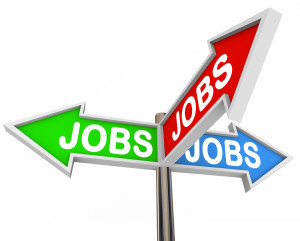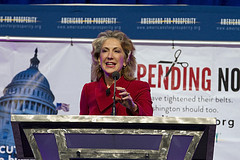The scariest question that looms over students’ heads as they approach their final year of college is: “what are you going to do after you graduate?”
I still cringe at the thought of laying down a concrete plan for my “grown-up” life. However, I can take comfort in the fact that I have a flexible degree that can be applied to many different careers throughout the course of my life. Especially in this economy, a person can expect to take on at least five different job titles in their lifetime (and likely even more than that). Therein lies the rub with overly specialized degrees—although the current market may thirst for a few specific careers, the market is constantly recalibrating.
 In a Wall Street Journal blog, Vivek Ranadive, CEO of Palo Alto tech firm Tibco Software commented on the importance of liberal arts degrees in the job market: “If you teach students one trade, that skill might be obsolete in a few years. But if you teach people how to think and look at lots of information and connect dots – all skills that a classic liberal education gives you – you will thrive.”
In a Wall Street Journal blog, Vivek Ranadive, CEO of Palo Alto tech firm Tibco Software commented on the importance of liberal arts degrees in the job market: “If you teach students one trade, that skill might be obsolete in a few years. But if you teach people how to think and look at lots of information and connect dots – all skills that a classic liberal education gives you – you will thrive.”
The ability to think through out-of-the ordinary problems and be creative in the workplace are among the most valuable characteristics of an employee (and the rhetorical skills to talk one’s way around something can’t hurt either, right?). Liberal arts educations give students the foundation to be successful in just about any occupation that deals with people and problems—which, by my observations, always seem to go hand in hand.
Speaking of problems, there is another issue that should be considered before jumping to the conclusion that technical degrees are the future of America: technology services, which require little to no communication skills, will likely all be outsourced overseas in the coming years. We have already seen this happen to manufacturing for comparable reasons; why would a company pay more to keep these jobs in America when people in other countries are capable of the same work at less cost?
On the other hand, jobs that require “soft skills” are here to stay: “The people who succeed in more expensive labor markets like the U.S. will be those who can think creatively and generate the ideas that will propel economic growth” (Vivek Ranadive). Much of the work done by graduates of Liberal Arts institutions is related to business, politics, journalism, authoring, human resources, counseling and all positions that are based in interpersonal communication. Careers that require language skills, reason, and critical thinking are unlikely to be shipped overseas by corporations due to a foreseeable sharp decline in client satisfaction (oh, you know you’ve experienced the excruciating frustration of a communication breakdown).
So, liberal arts students, you need not fret—more than likely your abilities can land you a position in nearly any company or industry you wish to pursue (remember, every company has a communication department, so start there!). As a bonus, studies show that although liberal arts graduates’ starting salaries aren’t as high as graduates in the sciences, “within 10 to 20 years they tend to outpace their counterparts in terms of income.”
Also encouraging for liberal arts students are the number of CEOs and similarly successful individuals who graduated with degrees in the liberal arts. Among these are Mitt Romney, Sam Palmisano (of IBM), Clarence Thomas, and Carly Fiorina (of Hewlett-Packard). These major players in the global market have demonstrated that you are not doomed to spend the rest of your life re-folding tee shirts on the display rack at Old Navy (unless you so choose).
Christie Pearce ’15 majored in politics and communications & rhetoric studies. She currently works for Chick-fil-A in corporate communications.

